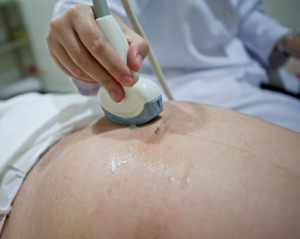Wisconsin Court of Appeals Makes Ruling in Birth Injury Case
When a medical malpractice case reaches trial, it becomes necessary for both parties to carefully consider the applicable state or federal rules of evidence. These rules, which are compiled and categorized into several sub-categories, govern what sort of evidence (e.g., testimony, documentation, physical evidence, or forensic data) may be presented to a jury for consideration.
In general, all relevant evidence is admissible, as long as the evidence is not overly prejudicial and there are no applicable exceptions (and, there are many exceptions).
Finds physician’s testimony admissible
One important sub-category of the rules of evidence involves testimony by experts. In most medical malpractice cases, including a recent birth injury lawsuit, the parties seek the opinion of an expert well-versed in the particular medical field at issue in the case. That expert will review the records from the event, and will formulate an opinion on whether the defendant acted reasonably under the circumstances. Practically speaking, the plaintiffs’ expert witness will generally testify that the defendant did not act reasonably under the circumstances, whereas the defendant’s expert will assert otherwise.
In court, a lay witness (i.e., a non-expert) is only permitted to testify as to what was actually seen, heard, felt, or experienced at the time of the alleged incident (or during another relevant time period). By contrast, a witness certified as an “expert” may offer his or her opinion on various relevant matters – making expert-witness certification, and testimony thereby, a hot-button issue in many malpractice cases.
Wisconsin Court of Appeals considers expert’s opinion
Each state maintains its own statute concerning the admissibility of expert testimony, and the Wisconsin statute reads as follows:
[A] witness qualified as an expert by knowledge, skill, experience, training, or education, may testify thereto in the form of an opinion or otherwise, if the testimony is based upon sufficient facts or data, the testimony is the product of reliable principles and methods, and the witness has applied the principles and methods reliably to the facts of the case.
In the case at hand, two parents filed a lawsuit against the obstetrician responsible for delivering their son, who was born with permanent nerve damage in his arm. In their lawsuit, the parents alleged that the circumstances arising during the birth – namely, the use of vacuum assistance during delivery – resulted in permanent injury, and that a reasonable obstetrician could have avoided the injury by exercising more careful judgment during the labor and delivery process.
To prove their assertion, the plaintiffs hired an expert witness with a purported superior knowledge of obstetrics and prenatal care. At trial, the expert testified that the obstetrician failed to conduct routine tests to determine whether the mother was suffering from gestational diabetes – a condition known to cause excessive fetal growth and difficult delivery. More specifically, the expert highlighted that the mother was not ordered to perform a three-hour glucose tolerance test, was not required to undergo regular growth scans, and was unreasonable in opting for a vacuum-assisted birth due to the child’s size.
On appeal, the defendant asserted that the testimony offered by the expert should have been excluded because it was based on that particular witness’s preferences, not reliable principles or methods as required by Wisconsin law. More specifically, the defense contended that the expert’s opinion regarding a three-hour gestational diabetes test was not supported by his reliance on medical literature, but instead what he would have done under the circumstances.
Court’s analysis
In its opinion, the court rested its decision on the notion that an expert witness may rely on personal preference when rendering an opinion on a matter, and set forth several reasons why the expert in this birth injury case provided reliable, admissible testimony. First, the court turned to a U.S. Supreme Court case which involved a similar inquiry, albeit related to the engineering field. In that case, the Court concluded that “a court may consider personal experience and knowledge when determining the reliability of expert testimony.” Secondly, the court explained that the personal preferences of an expert witness – particularly one with experience in delivering thousands of babies – “may be particularly useful in evaluating the reliability of medical expert testimony.”
The court further concluded that there is no definitive requirement for an expert to use medical literature in developing his or her opinion, and this is but one factor to consider when determining reliability. Lastly, in responding to the defendant’s assertion that the expert delivered “confusing testimony,” the court concluded that “[s]haky but admissible evidence is to be attacked by cross examination, contrary evidence, and attention to the burden of proof, not exclusion.”
- WisBar.org, Physician’s Testimony Admissible in Med-Mal Case, Appeals Court Rules, http://www.wisbar.org/NewsPublications/Pages/General-Article.aspx?ArticleID=24269
- WiCourts.gov, Siefert, et al. v. Balink, et al., http://www.wicourts.gov/ca/opinion/DisplayDocument.pdf?content=pdf&seqNo=145375
- Docs.legis.Wisconsin.gov, Chapter 907, http://docs.legis.wisconsin.gov/statutes/statutes/907.pdf


 Resources
Resources
 Resources
Resources

